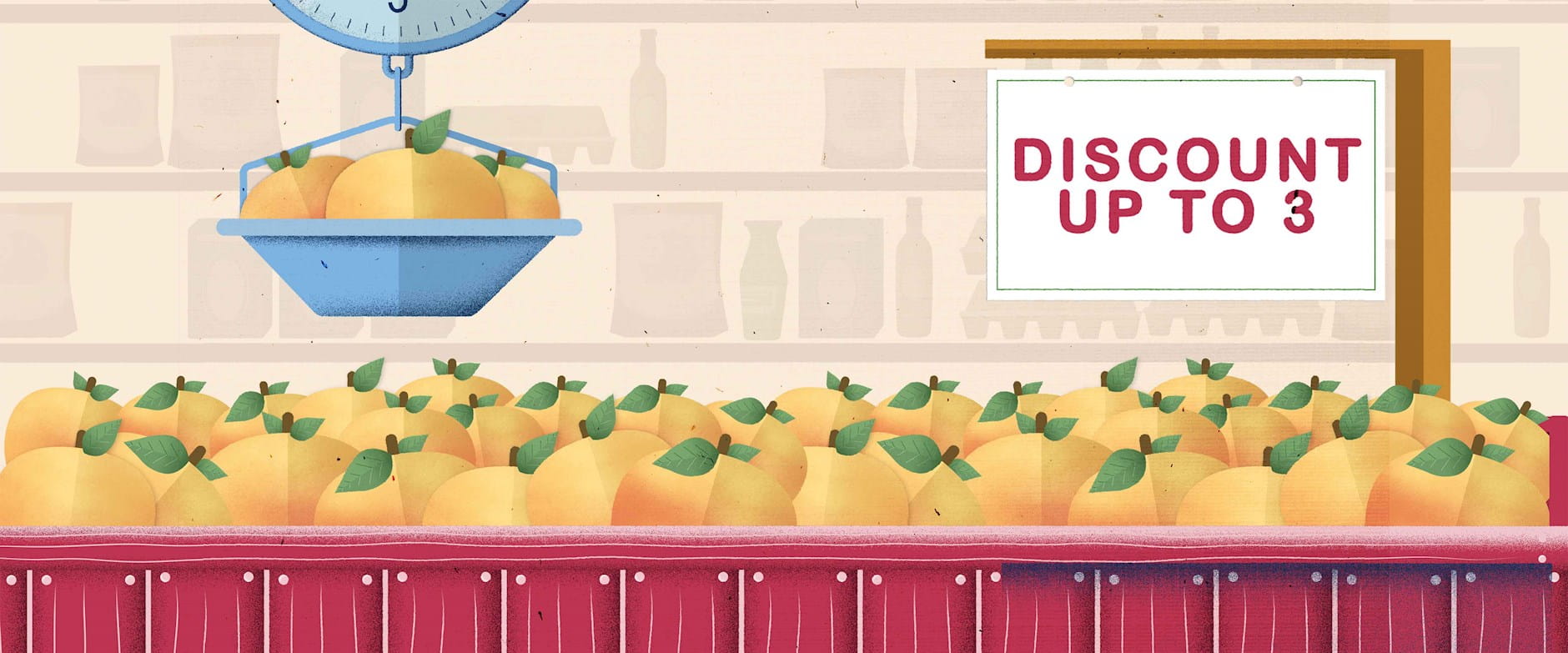Narrator: For as long as there have been markets, there have been discounts. Letting a would-be buyer know they’re actually getting a deal on a purchase is one of the best and easiest ways to boost sales. But could your discount actually be hurting sales? Research by Chicago Booth’s Abigail Sussman and her coauthors points to a phenomenon that can happen when a discount is paired with a quantity limit, meaning that the discount applies to only a limited amount of the product.
Abigail Sussman: Retailers often offer discounts to customers. Now, instead of offering a discount, companies could just lower prices. There are a variety of reasons why companies might use discounts instead. One of the main benefits from the customers’ perspective is that it actually increases what Richard Thaler has termed transaction utility—in other words, the value of the deal: people really like going to a store and feeling like they’re getting a good deal. We proposed that people typically go to the store with an idea of how much of a particular item they want to purchase. But they might walk out of the store buying a little bit more or a little bit less than they had originally intended, what we refer to as the acceptable range. What we’re proposing is that the amount available at a discount, the discount limit, can serve as a similar sort of cue that leads customers to pause, to think about whether that quantity is a good enough quantity for them to purchase.
Narrator: The researchers conducted an experiment at two supermarkets in China selling popular summertime peaches. They randomized whether a discount—the equivalent of 45 cents off each $1.20 peach—was offered and if so, whether it was limited to one or three peaches per person. Most people who bought the peaches typically took four or five—until the stores offered the discount.
Abigail Sussman: The common wisdom would probably suggest that people would buy more when more units were on sale. So if you put three peaches on sale, people would buy more than if you put one or no discount on the peaches. We propose something different. What we propose is that if the number that’s available on sale is close enough to the number that you had originally planned on purchasing, that you’ll just buy that amount. But if the amount that’s offered on sale is too low, you’ll ignore the number that’s offered on sale and buy the amount you’d originally intended. And so, consistent with this hypothesis, what we found is that people did indeed purchase less when more units were available at a discount.
Narrator: When no discount was given on the peaches, the average number purchased by the consumer was 4.4. When one peach was discounted, they saw a boost in peach sales to 5.1 peaches per customer. But when up to three peaches were discounted, far more people bought just three peaches, the average purchase being 3.4 per customer.
Abigail Sussman: So when retailers are thinking about setting these discount limits, they have to be really careful to avoid the acceptable range that might be lower than what customers would otherwise be purchasing.
